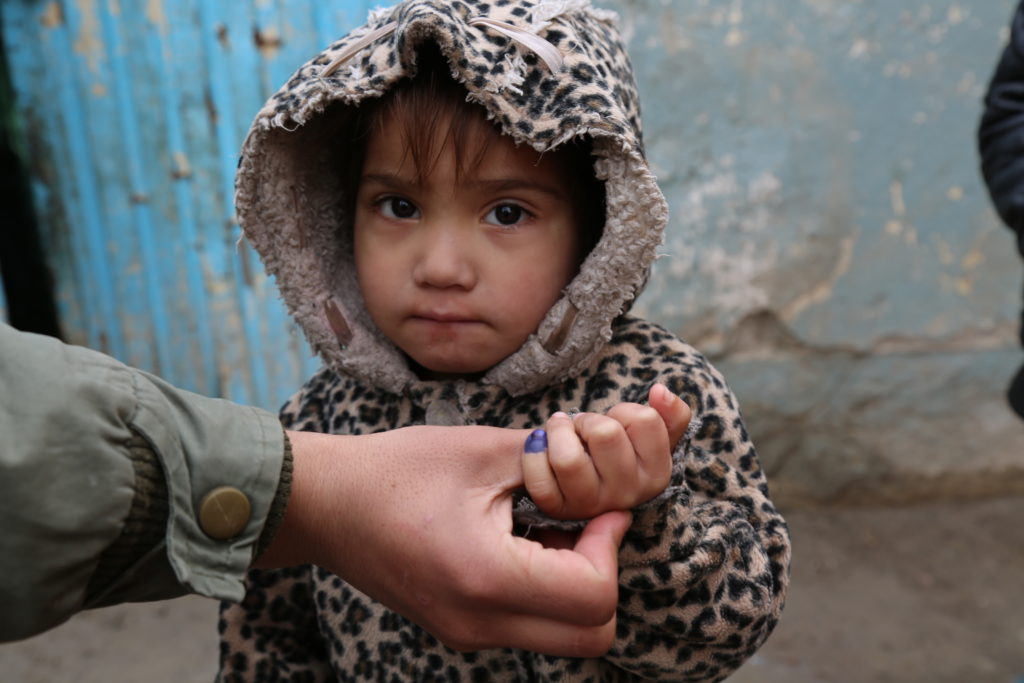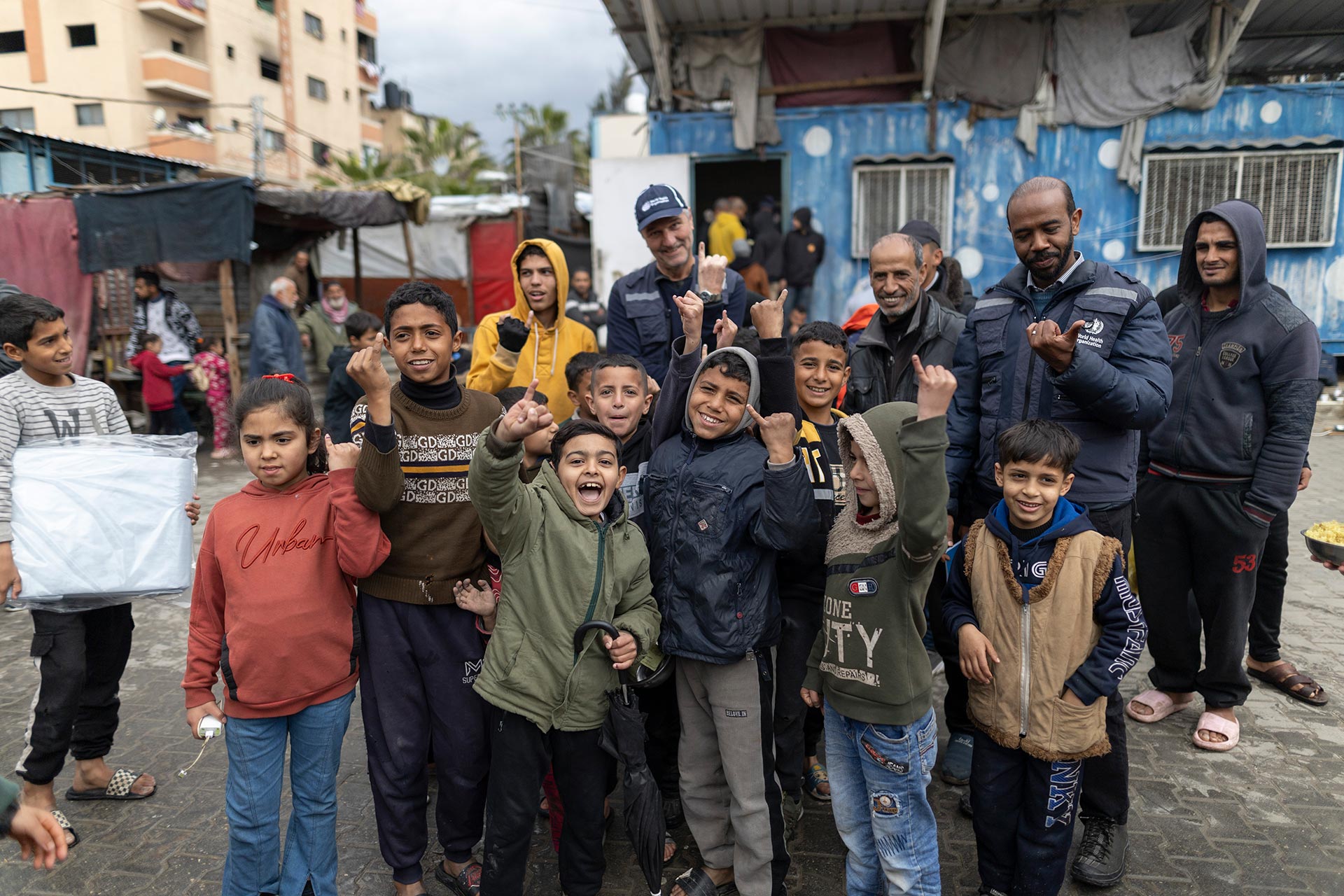
In Afghanistan, frontline health workers explain to parents why the polio vaccine must be delivered multiple times
“It’s easy for the others, they are young and strong!” laughs Hamida. She has just climbed hundreds of steps to the top of a long and steep staircase on the side of one of Kabul’s many hills. Together with her colleagues Mohib and Khalid she works as a part of a polio team vaccinating children in their community. Today, the team started at 8 am, and they have now been walking up and down the hill for three hours. No wonder she is tired.
So far, the group has visited 50 families and vaccinated 110 children. They have 30 more to go today, and, in the next three days, they will visit a total of 233.
The team’s role is not only to vaccinate the children but to also to educate people about the life-saving polio vaccine and its importance. It is not always an easy job.
“Last time we visited was only two weeks ago, so some parents have been asking why we are visiting again. I have explained to everyone that the vaccine is beneficial for the children and that children need to be vaccinated every time we visit to be protected.”
It is the first day of a vaccination campaign, which aims to immunize over 6 million children against polio in Afghanistan.
Today, thankfully, all families have accepted the vaccine from this team.
Last push to eradicate polio in Afghanistan
Afghanistan is one of the last countries in the world where wild poliovirus still circulates, and has the highest number of children paralyzed by the virus.
In 2017, there were a total of 14 cases and, so far in 2018, there have been three confirmed cases. In recent months, the virus has been found circulating in southern and eastern regions.
WHO Afghanistan polio programme manager Dr Hemant Shukla is confident that with stepped-up efforts, the circulation can be stopped. “Afghanistan has stopped transmission in the past in all areas, but not at the same time. We are confident that by following correct strategies, focusing in the right areas and by coordinating our efforts with neighbouring Pakistan, we can stop the transmission”.
To answer to the challenge, the Polio Eradication Initiative has stepped up efforts to detect any viruses in the environment. The programme is taking special steps in the eastern and southern regions to reach all children with the vaccine every time the vaccinators pass by, as these are very high risk areas for polio transmission, with people moving in and out of neighbouring Pakistan. Special outreach tactics are concurrently aiming to reach and immunize ‘mobile populations’, such as nomadic people, who are at high risk of contracting polio.
The oral polio vaccine is effective as it not only protects children from contracting the virus, it also prevents them from carrying it in their intestines. Several doses – spaced apart – need to be given to build sufficient immunity, especially in areas where poor nutrition can weaken immune systems.
During the low transmission season, the Polio Eradication Initiative conducted two campaigns – in January and February – in order to vaccinate children in high risk and very high risk districts in quick succession so that the vaccine would have a maximum effect.
In March, 10 million children across the whole country will be vaccinated – that’s every single child under the age of five years.
In Kabul, one by one the team marks their tally sheet with numbers and ages of the children and takes note whether all the children of the household were present.
One of the children vaccinated today is three-year-old Haroon, who stands outside his family’s home. His mother Nadia peeks through the gate. She has six children, and Haroon is her youngest.
“Haroon was just vaccinated two weeks ago, but I know it is important to vaccinate children every time”.
The team marks this household vaccinated for today.
In four weeks, Nadia will open up her door when the vaccinators knock again.



